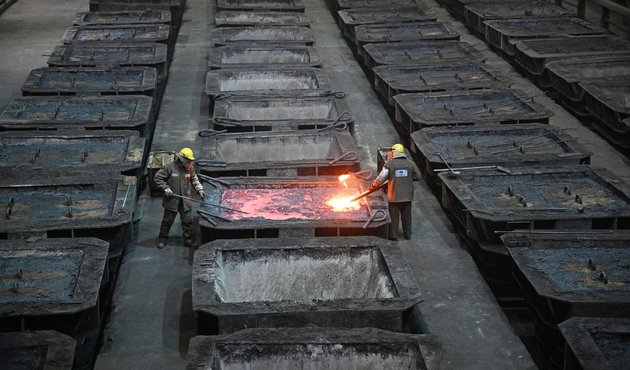New Global Witness analysis of customs data and Russian rail freight data shows continued exports of European-refined Russian-origin nickel to the US, long after the US sanctions were imposed
Key findings:
- Trade data shows the EU has legally imported nearly $1.3 billion of Russian nickel since the US and UK sanctioned the metal in April 2024.
- Around two-thirds of this value is connected to the Russian-owned Norilsk Nickel refinery in Finland.
- Most of this refined nickel is exported, with a significant share going to the US.
- The US has declared nearly $130 million of unwrought nickel imports from Finland since the US banned imports of Russian-origin nickel in April 2024.
- European buyers of the refined nickel include German company BASF and Belgian-French company Umicore.
- Invoices show direct ties between Norilsk Nickel and Russia’s war in Ukraine.
London – Russian-mined nickel is entering western markets – including the US, Germany and France – through a sanctions loophole, a new investigation from Global Witness has found.
Using shipment data and company disclosures, Global Witness has tracked the billion-dollar Russia-EU nickel trade, from remote Arctic mines to buyers in both the EU and the US.
Customs data analysis shows continued exports of European-refined Russian-mined nickel to the US, long after the US sanctions were imposed.
The investigation also reveals the persistence of Russian nickel entering the EU for stainless steel and EV batteries. Although the UK and the US sanctioned Russian nickel in April 2024, the EU did not follow suit.
An average of 290 containers of nickel legally crossed the Russia-Finland border every month between April 2024 and January 2025, according to Russian rail freight data. Refined in the EU, this nickel legally counts as Finnish and can still be exported to the US or traded on the London Metals Exchange.
The data highlights Europe’s key role in the production network of Russia’s giant mining conglomerate Norilsk Nickel, which continues to operate a major nickel refinery in Finland, even while Russian troops build up on the Finnish border.
Global Witness senior EU campaigner Beate Beller said:
“It is deeply concerning that Russian nickel continues to enter EU and US markets. This trade continues to generate revenue for a company with documented links to the war in Ukraine, undermining the credibility of Western efforts to isolate the Kremlin.”
Leaked invoices show sales from Russia’s mining giant Norilsk Nickel to Russian tank manufacturer Uralvagonzavod, demonstrating direct ties between a key EU nickel supplier and the Russian military.
While the EU has more than halved the share of Russian nickel in its imports since the Ukraine invasion, Russia still accounted for 15% of EU nickel imports in the second quarter of 2025.
These trading ties raise urgent questions about whether the EU is upholding its own human rights standards as it prepares to adopt new corporate due diligence laws (CSDDD).
All companies within the scope of the CSDDD will have to identify and publicly report on the risks they may be associated with and take action to mitigate them. In a country like Russia where dissent has effectively been criminalised, it is arguable whether such measures are possible.
Beller added:
“These findings also raise serious questions about Europe’s new due diligence law. The CSDDD – which is currently under renegotiation – is meant to ensure large companies operating in the EU identify and address human rights risks in their supply chains.
“Norilsk Nickel, through its Finnish subsidiary, will fall under the law’s obligations. It’s unclear how the company would meet these requirements.
“Major European buyers, who are also subject to the law, will need to take meaningful steps to assess and mitigate the risks linked to sourcing from this supplier. Without effective enforcement, Europe risks adopting a law that sounds strong in principle but fails to deliver real impact.”
